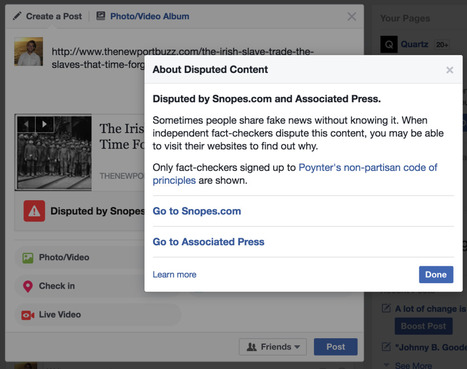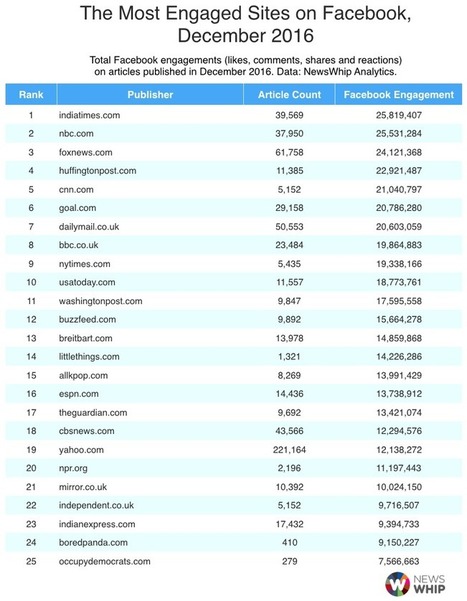Facebook has started deploying new weapons in its battle against fake news.
The election of Donald Trump to the presidency of the United States has led to a lot of soul-searching, not least of which by the world’s largest social network. Facebook has been repeatedly accused of facilitating and magnifying an ecosystem of websites that spread false information and conspiracy theories across the platform. That criticism led Facebook to announce late last year that it would be collaborating with “third-party fact checking organizations” to identify stories that don’t hold up to scrutiny, and warn users when they try to post these stories.
The new feature appears to be picking up steam. The Facebook fact-checker has begun flagging a story that was shared widely on the lead-up to St. Patrick’s Day (March 17) that falsely claims thousands of Irish people were brought to the United States as slaves. This is what happens when you try to share the story on Facebook...



 Your new post is loading...
Your new post is loading...










Facebook starts fighting fake news. Here's how. Very interesting reading.